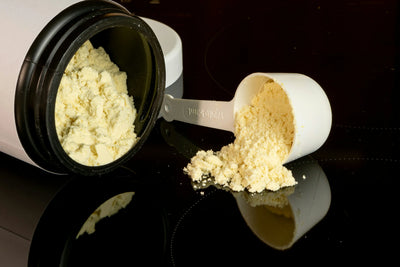Introduction
In this era where pets have become important members of the family, pet health is one of the most concerned topics for every pooper scooper. In addition to basic dietary management, how to scientifically and reasonably supplement nutrition for pets has become the key to improve the quality of life of pets. Among the many pet nutritional supplements, fish oil, krill oil, coconut oil and flaxseed oil are four types of oils and fats that are highly respected for their unique nutritional value and health benefits.

People love coconut oil so much, they'll credit the ingredient with everything from boosting their metabolism to giving their hair a healthy glow. Like kale and acai before it, coconut oil has become a veritable superfood. Health-conscious dog lovers have even started incorporating it into their pet care. While there are no clinical trials to prove these benefits of coconut oil in dogs, there have been relevant facts that show that dogs can indeed enjoy the many benefits of coconut oil.
Benefits of Coconut Oil on Dogs Skin
Did you know that coconut oil can actually be used on pets? And what kind of benefits can coconut oil have when used on dogs? Is Coconut Oil Good for Dogs?
1. Add Coconut Oil to Your Dog's Food
When feeding, although we will add the right amount of fat to the dog's food, but usually add vegetable oil. This is because vegetable oils are healthier and less likely to cause obesity in dogs. Coconut oil is one of these vegetable oils. Coconut oil helps to balance the levels of thyroid hormones in your dog's body, improves nutrient absorption, and helps your dog's ability to fight off digestive disorders.
Before you feed it, make sure you pay attention to the amount and whether it is suitable for your dog. Generally, small dogs should not consume more than 1/4 tablespoon per day, and medium and large dogs should not consume more than 1 tablespoon per day. If your dog has weight problems or pancreatitis, it is not recommended to feed your dog coconut oil because it is still high in calories.
2. Apply Coconut Oil to Your Dog's Skin
For dogs with dry skin or a lot of dandruff, it is very important to keep your dog's skin moisturized. The moisturizers and lotions that we usually use are definitely not suitable for dogs because the pH of human skin is not the same as that of dogs. Therefore coconut oil is a good choice, it has a very good moisturizing effect, and can increase the level of lipids on the surface of the dog's skin, making the coat more shiny, especially suitable for dogs in winter.
To use, simply apply to the palm of your hand and run your fingers through the coat. Apply evenly to the top of your dog's skin.
3. Apply to the Surface of the Pills Your Dog is Going to Take
When dogs are sick, asking them to take pills can be a pretty difficult process because the pills are really quite hard to take. Owners can apply coconut oil to the surface of the pills, which will not only mask the odor emanating from the medication, but will also make the dog think that the item in front of them is a tasty snack.
4. Apply Coconut Oil to Your Dog's Wounds
Coconut oil is believed to have natural antibacterial, antiviral, and antifungal properties, which when applied to your dog's injured wounds, helps prevent them from becoming infected. For dogs with seasonal skin allergies, applying coconut oil also helps to relieve the redness and itching of your dog's skin.
5. Brush Your Dog's Teeth with Coconut Oil
The antimicrobial properties of coconut oil are not only good for preventing wound infections, but also great for cleaning teeth, which can be considered a natural toothpaste. We don't brush our dogs' teeth every day, so their mouths actually contain a lot of bacteria. When you use coconut oil to brush your dog's teeth, it helps to eliminate the harmful bacteria in their mouth and reduces the risk of dental disease.
Can Dogs Drink Coconut Water?
In short, dogs can drink coconut water. Coconut milk is low in salt, sugar and calories and is rich in minerals, which not only helps dogs get some energy but also a lot of water. In hot summer days, coconut water is like an energy drink for dogs. After the dog exercise, the owner can drink some coconut juice to make up for the lost electrolytes. However, for the coconut milk that you usually see in the market, it is better for the owner not to give it to the dog. After all, these drinks may contain additives that are harmful to dogs, and dogs may also be lactose intolerant. Also, dogs that drink too much coconut milk may experience indigestion and diarrhea.
Can Dogs Eat Coconut Meat?
The key to whether coconut meat is good for dogs depends on how much the dog eats. Coconut meat is relatively high in calories, eat too much dog may not be able to eat other meals, and easy to cause dog obesity. At the same time, coconut meat is rich in fiber, if the dog's stomach is fragile, eat too much will lead to gastrointestinal discomfort. Take medium-sized dogs as an example, the owner is best to give the dog to eat once or twice a week, each time can only eat about 50 grams. Only control the amount of coconut meat for dogs is considered safe food, and also contains the following benefits.
1. Nutrient-rich
Coconut meat is rich in essential minerals and healthy fats, which both boost your dog's metabolism and help maintain body functions, such as maintaining acid-alkaline balance and so on. Among other things, coconut meat provides your dog with high levels of manganese, which helps strengthen bones.
2. Regulates blood sugar
Coconut meat is low in carbohydrates and high in healthy fats and fiber, so it can stabilize your dog's blood sugar level. Also, coconut meat has an amino acid called arginine. A study in India showed a relationship between the stability of insulin levels in animals and glucose levels and arginine. Of course, this does not mean that diabetic dogs can eat more coconut meat. In fact, coconut meat can not replace the medicine, but it can balance the dog's blood sugar level to some extent.

3. Rich in antioxidants
Coconut meat has a variety of powerful antioxidants, such as gallic acid, caffeic acid, salicylic acid and p-coumaric acid, which are all known as phenolic compounds. Several foreign animal studies have shown that these phenolic compounds block oxidative stress in animal cells, thus preventing cell damage or death. Simply put, these nutrients in coconut meat can boost your dog's immunity, fight off infections, and even prevent some cancers.
What Are the Benefits of Coconut Oil for Dogs?
Coconut oil is extracted from coconut meat and is 90% fat. The most useful fat is medium chain triglycerides (MCT), which is a “useful” fat. MCTs include lauric, capric and caprylic acids. Lauric acid has antibacterial, antimicrobial, and antiviral properties, while capric and caprylic acids have more significant effects. Depending on the dog's natural condition, medium-chain triglycerides can also be metabolized quickly to provide energy. Specifically, coconut meat has the following five benefits for dogs.
1. Helps with weight loss
Dog obesity is a very common problem, and can have a great impact on the dog's health, and may even cause high blood pressure, arthritis, diabetes, liver disease and other physical diseases. And a study at McGill University in Canada found that the medium-chain triglycerides in coconut oil will increase the dog's energy consumption, but also give the dog a sense of satiety, which helps to control the dog's weight.
2. Prevent infection
A study by the Federal University of Nigeria showed that coconut oil has natural anti-bacterial, fungal and viral properties and can be applied to dog wounds to act as an antibiotic. If your dog is always chewing his paws or scratching his skin, then the owner can apply coconut oil on it. And coconut oil is harmless to dogs, so it's okay for them to lick it off. However, coconut oil is only a relief and it is better for the owner to take the dog to the vet for treatment.
3. Good for skin and hair
In winter, the dog's skin is very easy to dry. At this time, the owner can apply some coconut oil to the dog, which helps to moisturize the skin. A study in the Philippines found that coconut oil can increase the lipids on the surface of the skin, thus moisturizing the skin. And coconut oil can also inhibit itchy dog skin and also make hair shinier. In addition, coconut oil can repel parasites such as mites and fleas. Owners can apply some on their dogs before going out to prevent their dogs from catching parasites outside.
4. Clean teeth
Because coconut oil has antibacterial properties, owners are able to use it as a natural toothpaste to remove harmful bacteria from their dog's mouth and also to prevent plaque formation to some extent. At the same time, the vast majority of dogs love the flavor of coconut oil, so dogs will not be particularly resistant to brushing their teeth.
5. Improve Brain Function
Coconut oil helps to improve brain function in older dogs due to the ketones in the ingredients, which provide energy to the dog and keep the brain and nerves functioning in a normal and active way, so oral intake of coconut oil may also prevent Alzheimer's disease.
If you want to give your dog some coconut oil, it is best to start with a small amount of coconut oil and then slowly increase it. Excessive amounts of coconut oil may cause diarrhea in dogs, and dogs with pancreatitis should not eat coconut oil. After all, coconut oil is high in fat, which may be difficult for dogs to tolerate. Overall, coconut is good for dogs, but it's best not to give too much. Has your dog ever eaten coconut or coconut oil?
Coconut oil - Composed of Medium Chain Fatty Acids
Coconut oil, also known as coconut oil, is obtained from coconut meat (dried) and is a white or yellowish fat. Coconut meat (dried) contains 65%-74% oil and 4%-7% water. Coconut oil has a high saponification value and a low refractive index, and the fatty acid composition of coconut oil has a saturated content of more than 90%.
Fat consists of fatty acids, divided into three main categories - monounsaturated fatty acids, polyunsaturated fatty acids, saturated fatty acids. Saturated fatty acids, found primarily in animal products such as meat and milk, where they appear solid at room temperature, are associated with many human health problems - obesity, high cholesterol and increased risk of heart disease. As a saturated fatty acid in plants, coconut oil was once a member of the unhealthy fats that people were advised to avoid. However, although coconut oil is a saturated fatty acid, it is not an unhealthy food. In fact, it contains many health benefits.

Coconut oil has a different chemical structure than the fats found in those steaks or chunks of butter - and it's these vast differences that have an impact on our health and that of our pets. While all saturated fatty acids are made up of long-chain fatty acids (LCFAs), coconut oil is made up of medium-chain fatty acids (MCFAs), or medium-chain triglycerides (MCTs). Coconut oil is the only fat in our daily diet that consists of medium-chain fatty acids, which are smaller molecules than the long-chain fats in other foods and are easily digested and absorbed by the body. The digestion of therapeutic coconut oil does not require the use of the body's pancreatic digestive enzyme system, and puts very little stress on the body's enzyme and hormonal systems. Moreover, the liver prefers to use medium-chain fatty acids as a fuel source for energy production, which in turn increases the efficiency of metabolism.
Is Coconut Oil Good for Dogs?
There are many reasons for owners to add coconut oil to their pet's diet. For example, unlike animal-based saturated fatty acids that can burden the heart, coconut oil is good for the heart!
1. Coconut oil contains lauricacid, a saturated fatty acid that converts the body's lauric acid glycerides and triglycerides into healthful substances.These benefits include antiviral, antibacterial, anti-microbial, anti-fungal, and anti-protozoal. Lauric acid actually destroys lipid-enveloped bacteria, fungi as well as viruses such as herpes, measles, influenza, Hepatitis C as well as HIV, ringworm and foot fungus.
2. Additionally, studies have shown that other health benefits of medium chain triglycerides (MCTs) found in coconut oil include:
- Weight loss (MCTs enhance metabolism, sending signals of satiety to the muscles and avoiding fat storage);
- Improved digestion and absorption of vitamins in soluble fats;
- Benefits for skin and hair;
- Rapid provision of energy in the form of non-carbohydrates.
3. In addition to the benefits listed above, a scientifically proven benefit of coconut oil is its ability to improve brain function in older dogs - a finding that has helped both humans and animals.
In this study, 24 senior Beagles, with 5.5% medium-chain triglycerides added to their daily diet, showed significant cognitive improvement in these dogs after one month. The study concluded that medium-chain triglycerides (as contained in coconut oil) provide an alternative source of energy for the brains of older dogs.
As the centerpiece of the body, the brain requires a lot of energy. However, as the body's ability to metabolize sugar declines with age, there is a gap in the brain's energy needs. When this happens, it becomes important to fill these gaps and provide the brain with alternative sources of essential energy. The medium chain triglycerides contained in these coconut oils do just that:
- Unlike common fats (which are slow to be metabolized by the body), medium-chain triglycerides are quickly broken down and absorbed into the body's circulatory system, quickly providing a non-carbohydrate source of energy;
- Medium Chain Glycerides quickly cross the blood-brain barrier, replenishing over 20% of the brain's energy needs;
- Medium-chain triglycerides are important for ketogenesis, serving as an additional source of brain food;
- Medium-chain triglycerides help the body use Omega 3s more efficiently, allowing them to be more concentrated in the brain.
Shopping for Coconut Oil
When purchasing coconut oil, choose unrefined, cold-pressed coconut oil; if possible, choose organic products to avoid the potential hazards of pesticides. Coconut oil does not need to be refrigerated for storage, but for grease-based products, it is best to store it out of the light. Dark glass containers are a better choice, which not only keeps the oils clear, but also ensures that they are free from BPAs (harmful chemicals found in plastic containers).
Studies have shown that providing no more than 10% of coconut oil per day in your dog's diet will not burden your dog's digestive system. However, too much coconut oil can also cause diarrhea, and adding it to your dog's diet needs to be added slowly, with a dosage of about 3-4 ml per 10 pounds of body weight.





